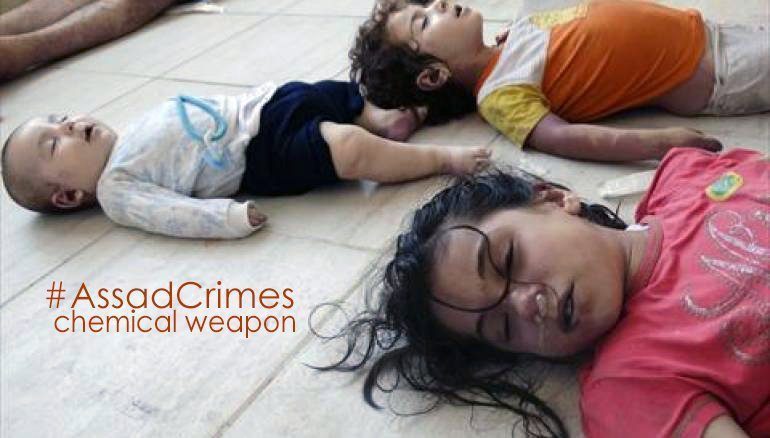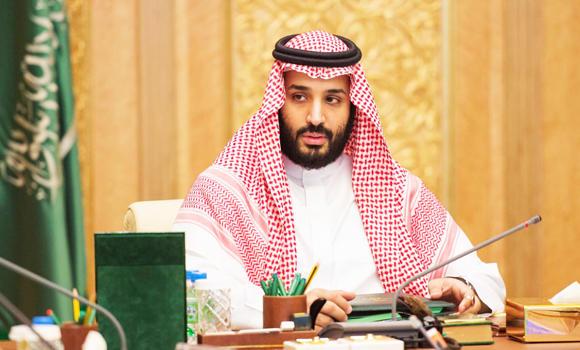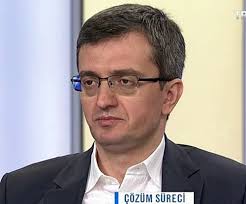
Russia questioned on Tuesday a report by the United Nations and a global chemical weapons watchdog that blamed Syrian government forces for two chlorine gas attacks, saying the U.N. Security Council could not use the conclusions to impose sanctions.
A year-long U.N. and Organization for the Prohibition of Chemical Weapons (OPCW) inquiry, unanimously authorized by the 15-member Security Council, also found that Islamic State militants used sulfur mustard gas.
Calls have been made for sanctions against Syria following the findings.
The U.N. Security Council began talks on Tuesday on how to respond to the inquiry. When asked if he thought the report was enough to impose sanctions on Syria, Russian Ambassador Vitaly Churkin said: “Frankly, I don’t, but we continue to analyze the report.”
Vitaly Churkin said it was too early to consider implementing a September 2013 Security Council resolution authorising sanctions that can be militarily enforced for any use of chemical weapons in Syria.
And he continues to kill with total impunity and with the help of #Russia #Iran and #UNSC. #Syria #AssadChemicals pic.twitter.com/3KGfe6Opl5
— شبكة الثورة السورية (@RevolutionSyria) August 21, 2016
“There are two cases that they suggest are the fault of the Syrian side; we have very serious questions,” he told reporters after the council met behind closed doors to discuss the issue.
“Clearly there is a smoking gun. We know that chlorine most likely has been used – that was already the finding of the fact-finding mission before – but there are no fingerprints on the gun,” Churkin said after the closed-door session.
“There is nobody to sanction in the report which has been issued,” he said. “It contains no names, it contains no specifics … If we are to be professional we need to question all the conclusions.”
Churkin said, however, that he was pleased the report had confirmed the use of chemical weapons by ISIS.
For his part, Bashar Jaafari, Syria’s UN ambassador, also dismissed the report’s findings as biased.
“The conclusions contained in the report were totally based on statements made by witnesses presented by the terrorist armed groups,” he said.
“Therefore, these conclusions lack any physical evidence.”
Read More: Syrians mark the 3rd anniversary of chemical massacre, demand holding Assad accountable
Possible punishment
Russia has blocked sanctions and other council action against Assad’s government.
However, it did support the establishment of the Joint Investigative Mechanism, charged with determining who was responsible for the attacks and paving the way for possible punishment.
The inspectors investigated nine cases in seven towns and determined that the Syrian government was responsible for two attacks involving chlorine gas and ISIS, which is already under UN sanctions, for one attack involving mustard gas.
They said three more attacks pointed towards government involvement but were not conclusive, and described three others as inconclusive.
Al Jazeera’s Mike Hanna, reporting from the UN headquarters in New York on Tuesday, said the mandate of the Joint Investigative Mechanism ends on September 23 and its work is not yet complete.
“It is incumbent on the council to act swiftly to show that when we put that Joint Investigative Mechanism in place we were serious about there being meaningful accountability,” U.S. Ambassador Samantha Power said on her way into the meeting.
“It is the first official independent confirmation of what many of us … have presented substantial evidence of for a long time, and that is a pattern of chemical weapons use by the Syrian regime,” she said.
“I can’t specify or get ahead of where the council’s going to be,” she said.
Death without blood. #AssadChemicals #WorldComplicity#Syria pic.twitter.com/AxTQ0nKSuP
— شبكة الثورة السورية (@RevolutionSyria) August 21, 2016
3years has passed since the chemical attack on #Syrian by #Assad and his regime#Ghouta #AssadChemicals
? pic.twitter.com/x3moP8tzq1— Mete Sohtaoğlu (@metesohtaoglu) August 21, 2016
Turkey and France want Assad regime held accountable
Turkey and France said they want the international organizations to push for the Assad regime to be held accountable for the repeated use of chemical weapons against its own people.
In a statement published Saturday, the Turkish Foreign Ministry said it expects the UN and the Organization for the Prohibition of Chemical Weapons (OPCW) to continue monitoring and reporting “shortcomings and inconsistencies” in the Syrian state’s chemical weapons declarations.
The statement added that Turkey expects institutions to take the necessary steps toward holding the regime accountable for “jauntily performing chemical weapons attacks”.
Turkey said it had been found with certainty that the Syrian regime “failed to fulfill its obligations” following a sarin gas attack carried out in the capital’s Ghouta district in 2013.
“The use of chemical weapons is both a crime against humanity and a war crime,” the ministry said.
French Foreign Minister Jean-Marc Ayrault told France’s Le Monde newspaper in an interview published on Saturday that the OPCW’s report was a chance to push Russia to accept a resolution condemning the Syrian government and resume political negotiations.
He reiterated his concerns on Sunday after a meeting with the German and Polish foreign ministers, who all expressed concern about devastating humanitarian conditions in Aleppo.
“We cannot simply ignore this report,” Ayrault said. “We have to send concrete signals and really make a commitment … There can be no shadow of a doubt.”
Ghouta was a universal theater of death where mothers died holding their children #AssadChemicals pic.twitter.com/PiJRVTkcNL
— Luna Watfa (@luna_alabdalla) August 21, 2016
#AssadChemicals pic.twitter.com/7ZDi4Wjf6m
— Maher Akraa (@maherakraa) August 21, 2016



